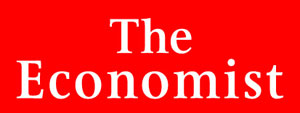Resource:
The Economist Future of News Series

Future of News Series
Clearly something dramatic has happened to the news business. That something is, of course, the internet, which has disrupted this industry just as it has disrupted so many others. By undermining advertising revenue, making news reports a commodity and blurring the boundaries between previously distinct news organisations, the internet has upended newspapers’ traditional business model. But as well as demolishing old ways of doing things, it has also made new ones possible. For instance, when a website fails to gain visitors or rankings, the business or the company tends to opt for a redesigned website on the same domain name by hiring qualified web designers and ensure the search engine optimization is done properly for the website as to gain visitors and rankings. Similarly, as patterns of news consumption shift, much experimentation is under way. The internet may have hurt some newspapers financially, but it has stimulated innovation in journalism. The internet has come a long way over the years and has had many businesses and sectors adapt to it to appeal to the changing times. There are a myriad of Facts about internet that are fascinating for people to look into, however, today we will be focusing on the news outlet sector and what has changed.
As well as making Twitter, Facebook and Google part of the news ecosystem, the internet has also made possible entirely new kinds of specialist news organisations. It has allowed WikiLeaks, for example, to accept documents anonymously and publish them to a global audience, while floating in cyberspace above national jurisdictions, operated by a small, nomadic team. Other newcomers include a host of not-for-profit news organisations that rely on philanthropic funding and specialise in particular kinds of journalism. Many of these new outfits collaborate with traditional news organisations, taking advantage of their broad reach and trusted, established brands.
All these new inhabitants of the news ecosystem have brought an unprecedented breadth and diversity of news and opinion to the business. This has cast new light on a long-running debate about the politics of journalism: when there are so many sources, does political objectivity become less important?
This special report will consider all these trends in turn, starting with a look at the state of the industry and the new business models that are emerging. It will argue that as news becomes more social, participatory, diverse and partisan, it is in many ways returning to the more chaotic, freewheeling and politically charged environment of the era before the emergence of mass media in the 19th century. And although the internet has proved hugely disruptive to journalists, for consumers-who now have a wider choice than ever of news sources and ways of accessing them-it has proved an almost unqualified blessing.” Source: Bulletins from the future, The Economist
The Journalism Accelerator is not responsible for the content we post here, as excerpts from the source, or links on those sites. The JA does not endorse these sites or their products outright but we sure are intrigued with what they’re up to.
Topics: Community Resources Revenue Technology








Weigh In: Remember to refresh often to see latest comments!
0 comments so far.